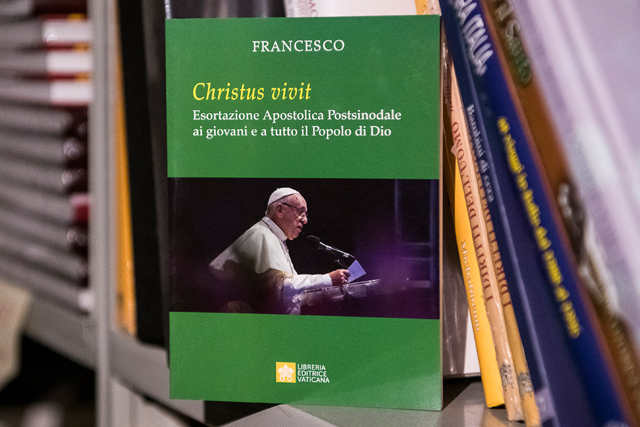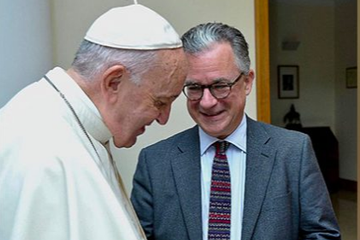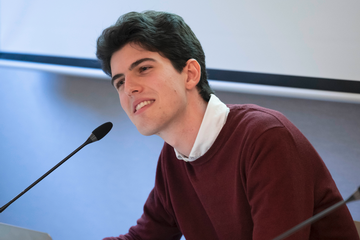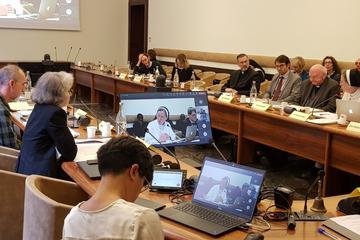
ROME — Pope Francis signed the Apostolic Exhortation, “Christus vivit,” (“Christ is alive”), dedicated to young people, March 25. The almost 300-paragraph text is a follow-up to the Synod on Young People, Faith and Vocational Discernment, held last October. We asked Lay Centre alumnus Filipe Domingues, who attended the Pre-Synodal Meeting and then served as an expert at the Synod, to share a few insights about the exhortation. His comments follow.
The very fact that Pope Francis decided to write the Apostolic Exhortation, and the first-ever papal document specifically addressed to youth, shows that young people are very important to him.
In fact, after the change in the rules of the Synod of Bishops, the pope does not necessarily have to write a post-synodal Apostolic Exhortation. He could just sign the final document written by the Synodal Fathers to confirm it.
However, rather than simply writing a letter to invite people to read the final document of the Synod, Pope Francis decided to write “Christus vivit” and to address it to young people, who are very much present in his thoughts, prayer and in his pontificate.
In the first part of the document, Pope Francis shows how young people have always been part of the history of salvation: Mary was young when she said “yes” to God’s plan, and Jesus, as well, is considered young by our current standards. Many messages that God sent reached humanity through the good example and goodwill of young men and women. There is no church without the youth. Everything in the church has to do with youth and this is something the rest of the church does not always think about.
The question of migrants is another topic dear to his heart and, interestingly enough, most migrants are young. Furthermore, the way he stresses — as his predecessor did as well — the importance of witnessing to the Gospel, and not just preaching it, is a response to why some young people step back from the church. If Catholics don’t live the Gospel in an attractive way, young people will not stay in the church.
During the Pre-Synod, many young people said they like Jesus, his example and what he proposes, but they do not believe that Jesus is God incarnate. They said they think he may have existed, that he was a good person who changed history, but not necessarily that he is God. Others said they believe Jesus is God and call themselves Christians. They pray and have a relationship with God, but they do not see in the church the way to God; they do not see members of the church as the best examples or companions to walk this path toward God.
The pope tackles this issue when he talks about abuses. There are many reasons for young people not to feel comfortable being in the church. The Synod discussed this issue and the pope is trying to address it. The church needs to get closer to young people and to help them in their struggles. In doing so, it must communicate that this outreach is based in the belief in the message of Jesus, our Savior.
The Apostolic Exhortation also speaks about the digital environment, and this is a reflection to which I contributed during the Synod. Pope Francis says social media can help to circulate information and that this is a new way of communicating. In many places, he adds, if you want to reach out to youth, you can’t prescind social media.
However, he also presents its downsides, saying that digital environments might also be places of loneliness, manipulation and sometimes violence. Behind social media are economic and political interests, which are important to understanding. As well, young people tend to be more vulnerable and, unfortunately, are the main victims of problems in the digital world, such as different forms of abuse, pornography, etc. Pastors — with the help of laymen and women — have the mission to assist young people and not let them fall into the traps of the digital world.
As well, the pope said that on social media, where the other is not immediately in front of you, people become disembodied and somewhat less human. The pope urges young people to never forget that there is a real human person on the other side of the screen.


